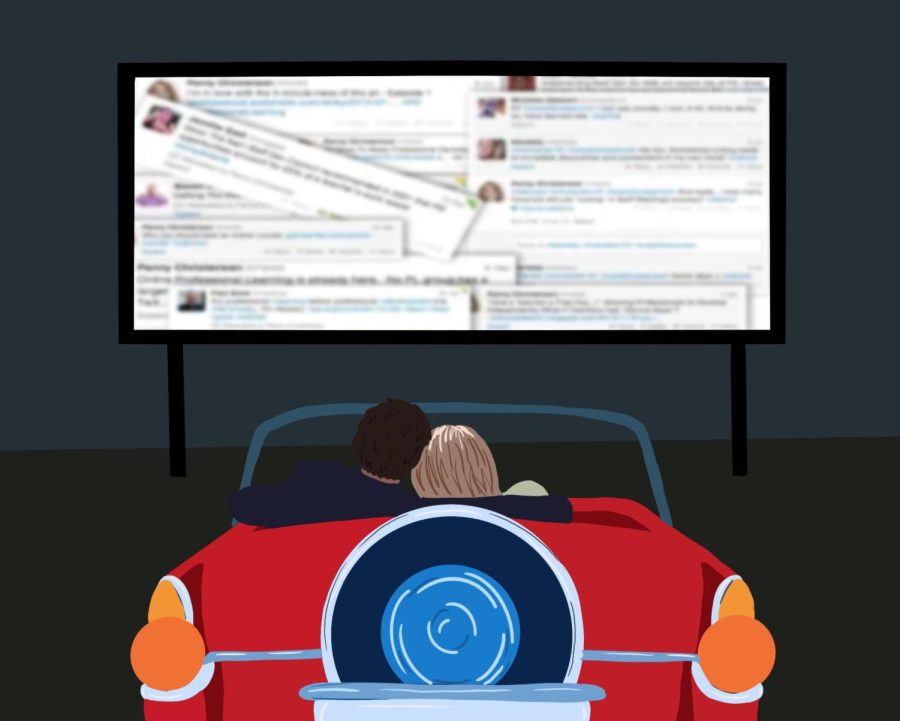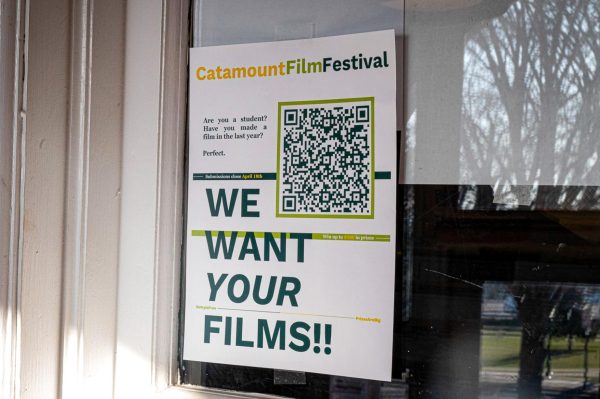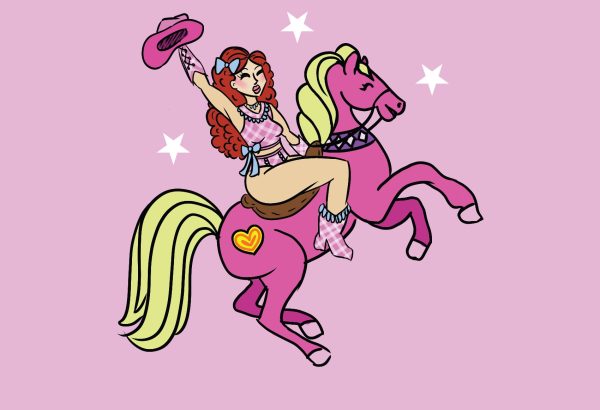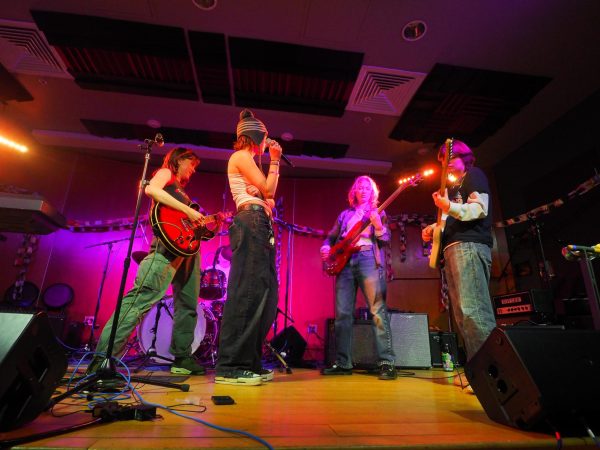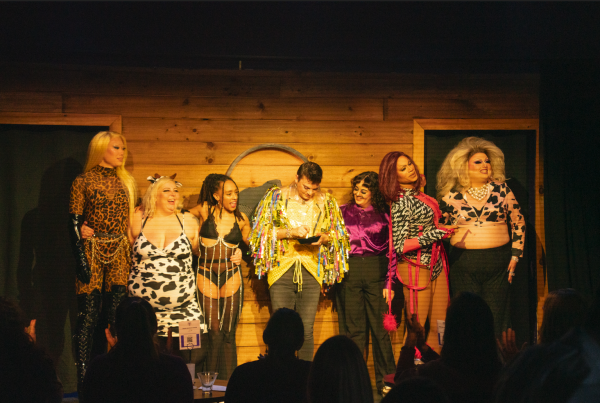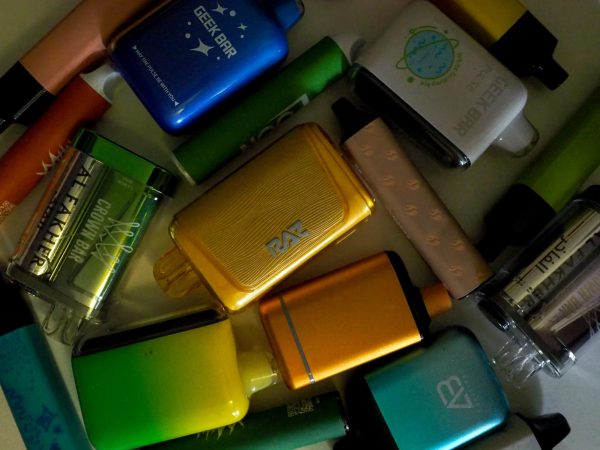“Don’t Worry Darling” release generates discourse on inequality in accountability
I think people hold women in positions of authority accountable far more often than men. In the case of the release of “Don’t Worry Darling,” a new blockbuster Hollywood film, director Olivia Wilde is the latest woman on the chopping block.
“Don’t Worry Darling,” starring Florence Pugh and Harry Styles and directed by Wilde, hit theaters Sept. 23. Chris Pine, Nick Kroll, Gemma Chan and Wilde herself were featured in supporting roles.
When I first heard about it, I was excited to see the film: a psychological thriller set in a 1950s utopian community that gradually starts to unravel. I, like many people, love Harry Styles and was excited to see him in a leading role and gawk at him on the big screen.
I was also drawn in by the ongoing drama surrounding Pugh and Wilde’s reported conflicts and Shia LaBeouf’s joining then exiting the cast, according to Complex.
The $35 million film experienced high levels of box office success, earning $19.2 million on its opening weekend, according to Fortune.
Yet, those drawn in by the film’s big names and big drama, like junior Madi Brice, weren’t impressed.
“Her escape at the end was vague,” Brice said. “I don’t like vague endings like that, I know some people do. I don’t mind that much, it just wasn’t my favorite.”
Senior Chrissy Peters was at the opening day showing, and though she gave a better review than Brice, wasn’t blown away.
“It was pretty good,” Peters said. “It wasn’t the best movie I’ve ever seen, but it wasn’t horrible either. I just didn’t like the ending.”
This lukewarm review comes after months of scrutiny of Wilde’s relationships with her cast.
Following a relatively warm reception after the project’s announcement, the tide quickly turned for Wilde and her film when paparazzi caught wind that she and leading actor Styles were in a relationship, according to Billboard.
In January 2021, photos of Styles and Wilde holding hands at a friend’s wedding were released by People.
Since her relationship with Styles went public, it seems Wilde can’t catch a break while trying to promote her film.
Some news outlets report genuine on-set concerns, specifically manipulative sexual actions taken by men in the film. For example, Style’s character distracting Pugh’s character’s from suspicions about their community with sexual acts—a move characterized as focusing on female pleasure, according to BuzzFeed News.
Other critics chose to focus on Wilde’s ongoing custody battle with her ex-husband, Jason Sudeikis, according to an Aug. 24 US Magazine article.
Overall, the amount of scrutiny placed on Wilde before her film’s debut felt overkill to me, as I had never seen this kind of attention paid to a male director’s personal life. While Wilde obviously has some serious issues worth talking about in the context of this film, it feels unfair and sexist that her personal life is being used to discredit her work.
This phenomenon of women being held to higher standards than men is running rampant in places like college campuses.
It can be as small as expecting more support from your female friends as opposed to their male counterparts, or as large as the free passes frats and male sports teams receive, because unsavory actions are expected as a part of their culture and people want a place to party.
Sin-Yee Chan, a professor of philosophy and feminist theory at UVM, talked about the sexist hate and scrutiny many successful women receive.
“People hate strong women and dismiss them as not so interesting, or not rational, or appealing to too small an audience,” she said. “Women are supposed to assume the inferior position […] That is why a woman who seems to be becoming stronger and breaking out is not welcome.”
Peters agreed that people were too harsh on Wilde.
“I definitely wanted to see it to see if it was as bad as people were saying,” Peters said. “I don’t think like a movie critic and I think people were being too critical of it. I think that has to do with Olivia Wilde.”
While the patriarchy and sexism seem to be in play here, the audience for opening weekend was comprised of 66% women, according to Fortune.
Wilde is a figure whose directorial career should be inspirational for women who want to work in the male-dominated film industry, but has received an overwhelming amount of hate from both a male and female audience.
“Even for some feminists, they look out for women who are rising because they know that they will be scrutinized,” Chan said. “They want to make sure that this rising star won’t betray women or send out the wrong message.”
Criticism plays an important role in progressing our society, but it is the unequal distribution of such criticism as being aimed more pointedly at women, from Hollywood to college campuses, that furthers societal gender inequality.


